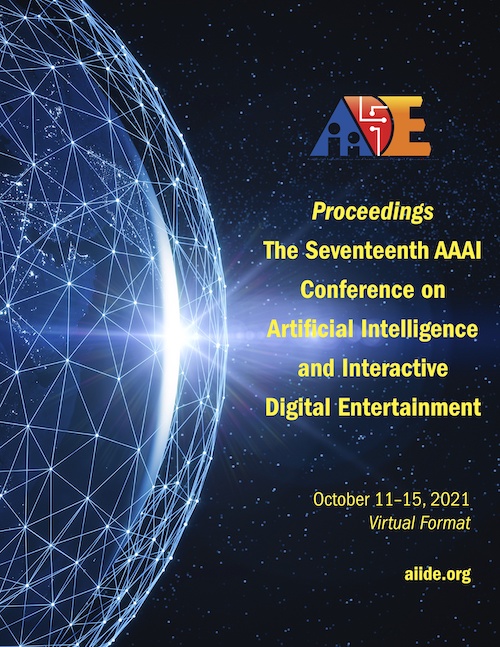AI Design Lessons for Social Modeling at Scale
DOI:
https://doi.org/10.1609/aiide.v17i1.18911Keywords:
Ai Design, Social Modeling, Game Design, Procedural Content GenerationAbstract
City of Gangsters is a commercial strategy game in which the player is principally challenged by navigating a complex and large-scale social network, in which every action resonates through the network and holds associated risks and rewards. Our procedurally-generated city results in a large social network with randomized and non-prescriptive configurations. Gameplay is oriented around social reciprocity and engaging in the same via an understanding of a concise set of social norms. Addressing these problems in a video game required a close unity between AI design and game design. We present four key AI design and implementation lessons learned in developing and shipping this game: the paramount need to make social actions and their consequences legible, the need for reversible actions, the need for modeled social norms to comprise a succinct set, and the need for individuals to be fungible with one another vis-a-vis social actions. We conclude with a description of the design affordances of this approach.Downloads
Published
2021-10-04
How to Cite
Robison, E., Viglione, M., Zubek, R., & Horswill, I. (2021). AI Design Lessons for Social Modeling at Scale. Proceedings of the AAAI Conference on Artificial Intelligence and Interactive Digital Entertainment, 17(1), 213-219. https://doi.org/10.1609/aiide.v17i1.18911
Issue
Section
Practitioner Papers

